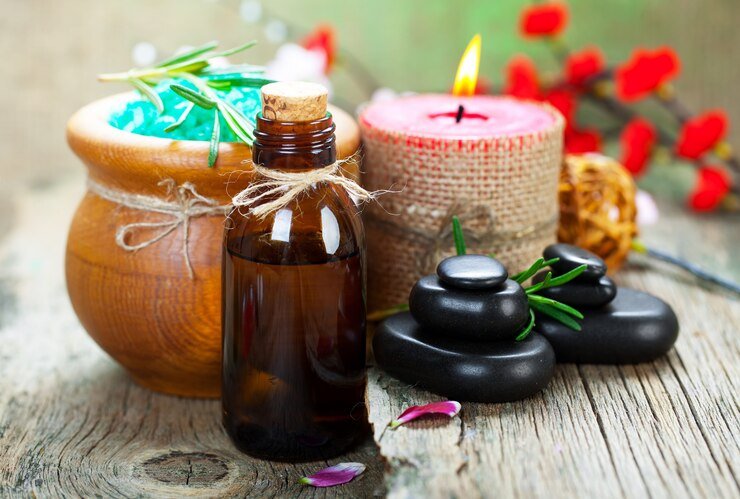The term “limpia” has a rich and versatile meaning, widely used in different cultural, linguistic, and practical contexts. From language and tradition to spirituality and cleansing rituals, “limpia” is a word that resonates across different regions, especially in Spanish-speaking communities. In this article, we will explore the meaning of “limpia,” its various uses, and the cultural significance it holds.
Whether you’ve encountered the word in a casual conversation, a spiritual context, or as part of an everyday activity, understanding its depth can offer new insights into its importance.
Understanding Limpia in Different Contexts
Limpia in the Spanish Language
In the Spanish language, “limpia” translates to “clean” or “cleaning.” It is the feminine form of the adjective “limpio,” which means clean. The term is commonly used in daily life to describe anything that is clean or has been cleaned. This can range from cleaning a room or an object to referring to a person who maintains cleanliness.
Examples of its usage in daily conversation might include:
- “Esta casa está limpia.” (This house is clean.)
- “Voy a limpiar la mesa.” (I am going to clean the table.)
It is important to note that “limpia” can be used in different verb forms or nouns, depending on the context in which it is used.
Limpia in Spiritual and Ritualistic Practices
The word “limpia” also holds a significant place in spiritual practices, particularly within various Latin American cultures. In these contexts, it refers to a cleansing or purification ritual designed to rid individuals or spaces of negative energy, bad spirits, or emotional blockages. The ritual can involve the use of herbs, incense, candles, and prayers, depending on the belief system in question.
In countries like Mexico, Peru, and Colombia, spiritual “limpias” are performed by healers, shamans, or spiritual guides. These rituals are thought to bring balance and harmony to the person or place being cleansed. Often, the ritual involves physical actions, such as brushing or sweeping the body with herbs or using eggs to absorb negative energy.
Limpia in Cultural and Traditional Practices
Cultural significance also plays a crucial role in understanding the word “limpia.” In many traditional practices, particularly in folk medicine, limpia refers to various methods of healing or restoring vitality. For example, traditional healers or curanderos may conduct a “limpia” to restore a person’s health, remove harmful energies, or heal emotional wounds. The healing can be performed through massage, herbal remedies, or using spiritual instruments like candles, incense, or oils.
This traditional use of “limpia” is not just a method of physical cleaning but extends to emotional and spiritual health, demonstrating the deep cultural connection between cleanliness and well-being.
Limpia in Everyday Life
Limpia as a Cleaning Ritual
In a more practical sense, “limpia” can be understood simply as the act of cleaning, purging, or tidying up. This aspect of limpieza is deeply ingrained in daily life across various communities, especially in Hispanic cultures where cleanliness is highly valued. The concept extends beyond physical cleaning to represent the idea of purifying one’s environment, creating a sense of order, and promoting good energy in one’s surroundings.
Many households in Spanish-speaking countries incorporate a variety of cleaning rituals into their routines, such as cleaning specific spaces or objects to maintain a sense of harmony. These practices, though seemingly mundane, play an essential role in creating an environment that fosters peace, health, and positive energy.
The Role of Limpia in Personal Well-being
On a personal level, “limpia” also symbolizes personal cleansing or renewal. This could refer to a person’s efforts to “cleanse” themselves of negative emotions, thoughts, or past experiences. The idea of personal cleanliness and emotional health are often interwoven in many cultures, where a clean space or body is seen as a sign of inner peace and balance.
In a symbolic sense, limpia can also refer to letting go of past traumas or negativity. Just as one might clean a house. Individuals may engage in practices such as meditation, journaling, or therapy to clear their minds and refresh their outlook on life. The act of “limpiando” the mind is a metaphorical process of letting go of what no longer serves one’s emotional health.
Limpia in Popular Culture and Media
In recent years, the concept of “limpia” has found its way into popular culture. Particularly in TV shows, movies, and books that explore themes of spirituality and mysticism. From documentaries that delve into the customs and rituals of indigenous cultures to horror films involving supernatural forces. The idea of limpia is often used to convey the power of purification and cleansing.
In some instances, limpia is represented in media as a method for individuals to overcome obstacles, whether those obstacles are external (like ghosts or curses) or internal (such as emotional distress). The ritual of limpia provides a way for people to reclaim control over their lives by removing harmful influences, both seen and unseen.
The Significance of Limpia in Contemporary Society
A Return to Traditional Practices
As society becomes increasingly modernized, there has been a renewed interest in traditional practices, including limpia rituals. Many people are seeking a deeper connection to their cultural roots and spiritual heritage. Leading them to embrace cleansing practices as a way of reconnecting with their ancestors.
Limpia rituals are gaining popularity not only among Latinx communities. But also among those who are seeking alternative forms of healing and spiritual rejuvenation. This trend highlights the enduring significance of limpia’s. Demonstrating that these traditions continue to resonate with people across cultures and generations.
Limpia as a Symbol of Cleanliness and Renewal
In the modern world, the idea of limpia’s as a process of renewal and personal transformation is more relevant than ever. With the rise of mindfulness practices, mental health awareness. And holistic wellness, the concept of cleansing one’s life or environment has taken on new meaning. People now see “limpia’s” not just as an act of physical cleaning but as a symbolic gesture of releasing the old to make room for the new.
Whether through mindfulness, cleaning rituals, or spiritual practices, individuals today are embracing “limpia’s”. As a way to clear mental, emotional, and physical clutter, helping them lead healthier, more balanced lives.
Conclusion
In conclusion, the term “limpia” is far more than just a word for cleaning. It carries with it deep cultural, spiritual, and emotional significance, making it a powerful concept in many societies. Whether used to describe a physical cleaning activity. A spiritual purification ritual, or a process of emotional renewal, “limpia’s” encapsulates the importance of cleanliness, balance, and healing in our daily lives.
Understanding limpia’s helps us appreciate the role that both physical and metaphysical cleanliness play in shaping our well-being. From its roots in traditional healing practices to its role in modern spiritual practices. limpia’s remains an enduring symbol of restoration and rejuvenation, reminding us of the importance of maintaining a clean. Balanced, and positive environment for the mind, body, and soul.
FAQs
What does “limpia” mean?
“Limpia” means clean or cleaning in Spanish. It refers to the act of cleaning or purifying something or someone. And it is often used in spiritual contexts to describe purification rituals.
How is “limpia” used in traditional healing?
In traditional healing, “limpia’s” refers to spiritual cleansing rituals designed to remove negative energy or bad spirits from a person or space. These rituals can include the use of herbs, incense, and prayers.
Is “limpia” only a cleaning process?
No, while “limpia” can refer to physical cleaning. It also has symbolic and spiritual meanings, such as emotional and spiritual purification.
How can I incorporate “limpia” into my daily life?
You can incorporate “limpia’s” by creating a habit of maintaining cleanliness in your physical environment and engaging in spiritual or mental cleansing practices. Such as meditation or journaling.
What cultures use the concept of “limpia”?
The concept of “limpia’s” is commonly used in many Latin American cultures, including Mexico, Peru, and Colombia. Where it is part of traditional healing and spiritual practices.











